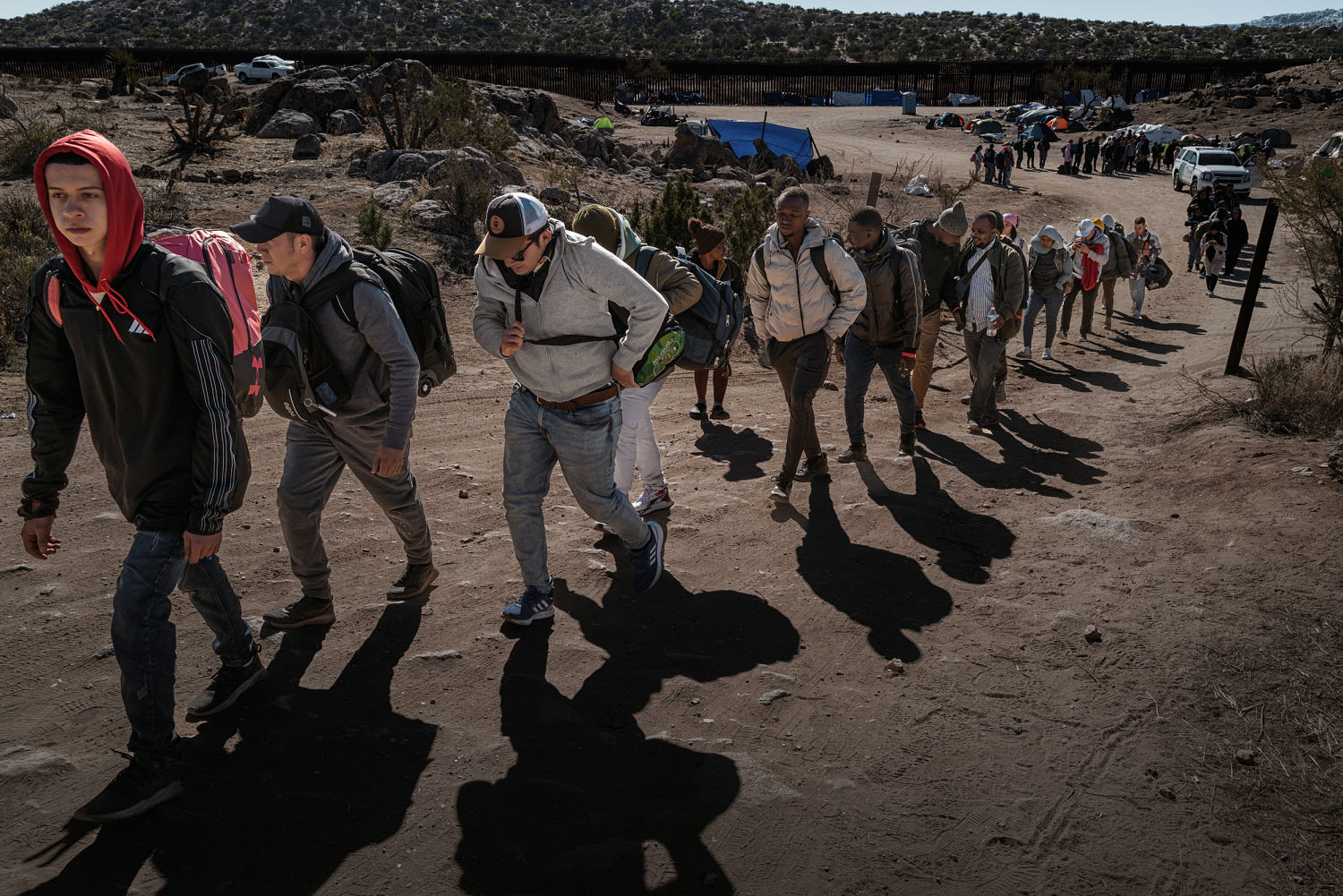
WASHINGTON — A trio of House progressives is forming a caucus aimed at reframing the national immigration debate away from controls on the southern border and toward fixing the root causes of migration to the U.S.
The new Congressional Caucus on Global Migration will be co-chaired by Reps. Delia Ramirez, D-Ill., Greg Casar, D-Texas, and Sydney Kamlager-Dove, D-Calif. In a one-page memo, first reported by NBC News, the Democrats say families around the world are migrating at unprecedented levels “in search of safety and stability” because of a mix of global “violence, civil wars, human rights violations, democratic backsliding, economic exclusion, and climate instability.”
But rather than tighten the rules to shut out asylum-seekers, they instead propose to examine “the factors and conditions that displace or drive people to migrate” to the U.S. and craft domestic and foreign policy solutions that diminish the need for people to migrate. The caucus says it plans to hold quarterly actions, including “roundtables, briefings, special order speeches, shadow hearings [and] public toolkits,” to stir Congress to meaningful action.
“We Democrats have done a terrible job in actually talking about immigration and actually talking about root causes of migration,” Ramirez said in an interview. “We’ve just been reactive and apologetic instead of actually moving in the direction that positions Congress to be an effective ally to global efforts that creates a safer, more equitable world where people don’t have to come to the U.S.”
The new caucus, which counts 14 founding House members, comes as immigration has turned into a major liability for President Joe Biden during his re-election bid this year, prompting the White House and moderate Democrats to adopt some conservative proposals to tighten U.S. border and asylum laws. Former President Donald Trump has called for an immigration crackdown in his presidential bid. Progressives, who were on the offensive with immigration policy a decade ago, are now on the back foot and urging their party not to embrace GOP attitudes that call for a more restrictive system.
Ramirez and Casar said the U.S. should seek to mitigate the need for migration with policies like boosting humanitarian aid, avoiding destabilizing sanctions on countries like Venezuela and toughening gun laws to prevent Mexican gangs and cartels from causing violence with U.S. firearms at home.
“Right now, so much of the conversation on the Hill talks about the border as if immigration starts at the border, and it doesn’t. It starts in people’s home countries,” Casar said. “And hardly anybody is talking about that.
“When I sat down recently with the ambassador from Mexico, the very first issue he brought up was that the majority of the guns that they confiscate from cartels come from the United States,” Casar continued. “And a huge portion of them from Texas, because you can buy a gun without a background check and without a license in Texas. … The United States should make sure that we work to not contribute to further violence and destabilization in Mexico.”
Republicans argue that the U.S. border is overwhelmed with more asylum-seekers than it can process because Biden rolled back Trump’s policies to deter migration. Democratic leaders, conscious of polls that show the GOP to be more trusted on immigration, have accepted the need for a higher bar to seek asylum. But the new House caucus disagrees.
Asked why the politics of immigration have moved rightward, Ramirez blamed, in part, the “great replacement” conspiracy theory espoused by the far-right fringe and some members of Congress. It baselessly posits that a liberal cabal is using immigration policies and other means to replace white voters with nonwhite voters to benefit Democrats.
“There is a real belief that white people are getting replaced and that they have to do everything it takes to be able to survive all of us coming into this country,” Ramirez said, adding that Republicans “have decided that immigration and people seeking asylum would be the No. 1 strategy to either win the White House or destabilize Democrats” and that her party hasn’t done enough to counter that narrative.
The three lawmakers are eyeing a momentous task. In July 2021, the White House assigned Vice President Kamala Harris as part of a “Root Causes Strategy” to tackle the underlying crises in Central America fueling migration. But that has failed to deliver results as the U.S. asylum system has become even more overwhelmed.
“With this caucus, we’re sending the message that Democrats want to address the global migration crisis. This crisis is a foreign policy issue that goes beyond the southern border,” Kamlager-Dove said.
